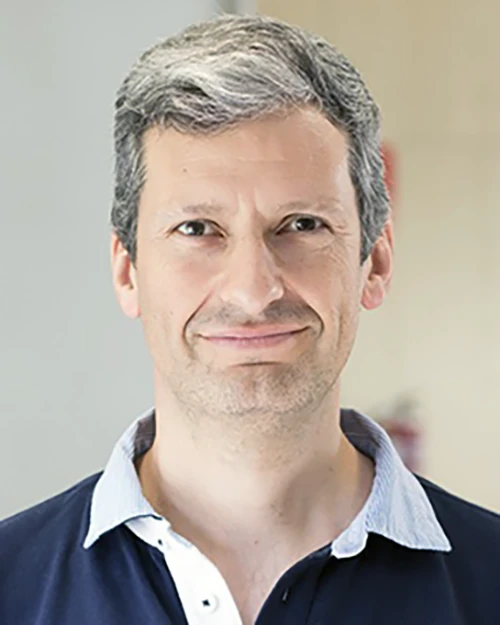 Alberto Fernández is a full professor of Computer Science and Artificial Intelligence at the University Rey Juan Carlos (URJC) in Madrid, where he is a member of the Artificial Intelligence Group of the CETINIA research centre. He obtained a PhD in Computer Science from the URJC in 2007. He has been Vice-Dean for Quality and Study Programmes of the School of Informatics (ETSII) at URJC from 2016 to 2019. His main research interests include multi-agent systems, knowledge representation, semantic technologies, open systems, ethical implications of AI, etc. He is especially interested in applying those technologies in domains such as intelligent transportation systems, emergency management, fleet management, etc. He has led and participated in numerous national and international projects on the above topics and has published more than 100 papers in international journals, books and conferences.
Alberto Fernández is a full professor of Computer Science and Artificial Intelligence at the University Rey Juan Carlos (URJC) in Madrid, where he is a member of the Artificial Intelligence Group of the CETINIA research centre. He obtained a PhD in Computer Science from the URJC in 2007. He has been Vice-Dean for Quality and Study Programmes of the School of Informatics (ETSII) at URJC from 2016 to 2019. His main research interests include multi-agent systems, knowledge representation, semantic technologies, open systems, ethical implications of AI, etc. He is especially interested in applying those technologies in domains such as intelligent transportation systems, emergency management, fleet management, etc. He has led and participated in numerous national and international projects on the above topics and has published more than 100 papers in international journals, books and conferences.
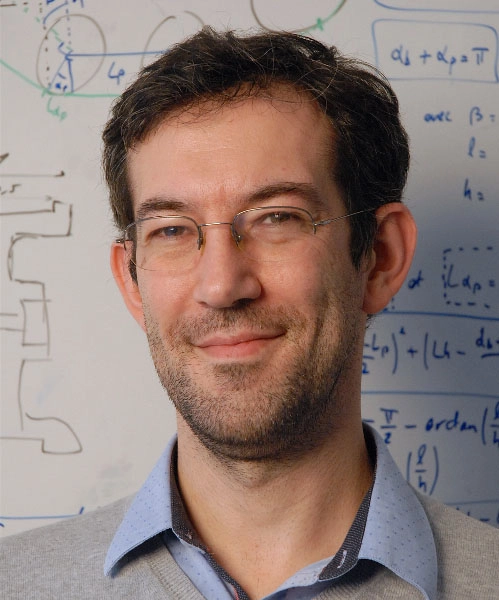 David Filliat graduated from the Ecole Polytechnique in 1997 and obtained a PhD on bio-inspired robotics navigation from Paris VI university in 2001. After 4 years as an expert for the robotic programs in the French armament procurement agency, he is now professor at Ecole Nationale Superieure de Techniques Avancees Paris. Head of the Computer Science and System Engineering laboratory team since 2018, he obtained the 'Habilitation a Diriger des Recherches' en 2011 and is a member of the joint ENSTA Paris - INRIA FLOWERS research team on developmental robotics. His main research interests are perception, navigation and machine learning in the frame of the developmental approach for autonomous and mobile robotics.
David Filliat graduated from the Ecole Polytechnique in 1997 and obtained a PhD on bio-inspired robotics navigation from Paris VI university in 2001. After 4 years as an expert for the robotic programs in the French armament procurement agency, he is now professor at Ecole Nationale Superieure de Techniques Avancees Paris. Head of the Computer Science and System Engineering laboratory team since 2018, he obtained the 'Habilitation a Diriger des Recherches' en 2011 and is a member of the joint ENSTA Paris - INRIA FLOWERS research team on developmental robotics. His main research interests are perception, navigation and machine learning in the frame of the developmental approach for autonomous and mobile robotics.
 Raquel Fuentetaja is an associate professor of computer science at the Universidad Carlos III de Madrid (UC3M), Spain and member of the Planning and Learning research Group (PLG). Her research interests include representation change and online selection of configurations in Automated Planning, planning execution architectures for controlling autonomous systems, machine learning for problem solving, and generalized planning. She has published about 35 papers in journals, conferences and workshops. She has been involved in over 25 research projects funded by the Spanish Government and the European Commission. Currently she is Co-PI of GoalHub (Optimized planning software for the efficient exploitation of train traffic capacity in high congestion stations), and participates in the projects Arpía (Activity Recognition and Planning for Intelligent Assistants) and Clarc Echord++ (Automated Planning for Comprehensive Geriatric Assessment Using an Autonomous Social Robot. She has been program committee at several international conferences on AI (IJCAI, ICAPS, ECAI, etc.), and organising committee of WAF18 (19th Workshop of Physical Agents) and GENPLAN'20 (AAAI'20 Workshop on generalization in planning).
Raquel Fuentetaja is an associate professor of computer science at the Universidad Carlos III de Madrid (UC3M), Spain and member of the Planning and Learning research Group (PLG). Her research interests include representation change and online selection of configurations in Automated Planning, planning execution architectures for controlling autonomous systems, machine learning for problem solving, and generalized planning. She has published about 35 papers in journals, conferences and workshops. She has been involved in over 25 research projects funded by the Spanish Government and the European Commission. Currently she is Co-PI of GoalHub (Optimized planning software for the efficient exploitation of train traffic capacity in high congestion stations), and participates in the projects Arpía (Activity Recognition and Planning for Intelligent Assistants) and Clarc Echord++ (Automated Planning for Comprehensive Geriatric Assessment Using an Autonomous Social Robot. She has been program committee at several international conferences on AI (IJCAI, ICAPS, ECAI, etc.), and organising committee of WAF18 (19th Workshop of Physical Agents) and GENPLAN'20 (AAAI'20 Workshop on generalization in planning).
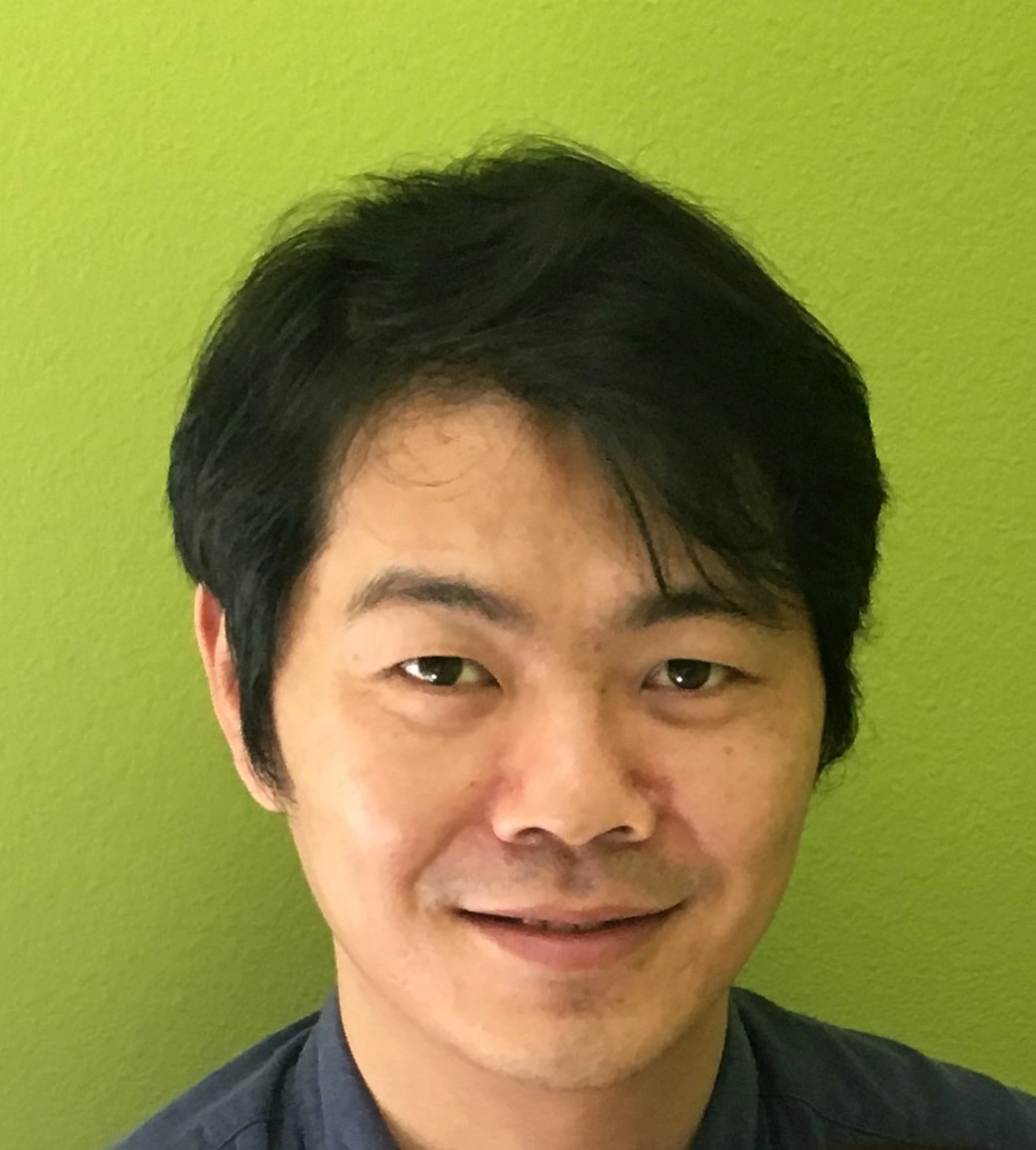 Xingang Fu received his Ph.D. degree in electrical engineering from the University of Alabama (UA), Tuscaloosa, AL, USA, in 2015. He is currently an Assistant Professor with the Department of Electrical and Biomedical Engineering, University of Nevada, Reno (UNR), Reno, NV, USA. His current research interests include Neural Networks, Deep Learning, Neural Dynamics, Approximate Dynamic Programming, Smart Inverters, Smart Grid, Wide-Bandgap Semiconductors (GaN &SiC), DSP/FPGA Embedded Systems, and so on.
Xingang Fu received his Ph.D. degree in electrical engineering from the University of Alabama (UA), Tuscaloosa, AL, USA, in 2015. He is currently an Assistant Professor with the Department of Electrical and Biomedical Engineering, University of Nevada, Reno (UNR), Reno, NV, USA. His current research interests include Neural Networks, Deep Learning, Neural Dynamics, Approximate Dynamic Programming, Smart Inverters, Smart Grid, Wide-Bandgap Semiconductors (GaN &SiC), DSP/FPGA Embedded Systems, and so on.
He is a Senior Member of the IEEE Computational Intelligence Society, IEEE Power Electronics Society, IEEE Power & Energy Society, etc.
 Marco Gori received the Ph.D. degree from University of Bologna, working partly at McGill University, Montréal. He is full professor of computer science at the University of Siena, head of the Siena Artificial Intelligence Lab, and co-founder of Questit. He was Chairman of the Italian Chapter of the IEEE Computational Intelligence Society, and President of the Italian Association for Artificial Intelligence. He is a fellow of the IEEE, EurAI, and IAPR.
Marco Gori received the Ph.D. degree from University of Bologna, working partly at McGill University, Montréal. He is full professor of computer science at the University of Siena, head of the Siena Artificial Intelligence Lab, and co-founder of Questit. He was Chairman of the Italian Chapter of the IEEE Computational Intelligence Society, and President of the Italian Association for Artificial Intelligence. He is a fellow of the IEEE, EurAI, and IAPR.
He is author of “Machine Learning: A Constraint-Based Approach,” Morgan Kaufmann, 560 pp., 2018.
 Dr. Keramati is a multi-disciplinary scientist with his background in Computer Engineering (BSc), Economics (MSc), and Mathematical Neuroscience (PhD). He held two postdoctoral positions in Computational Neuroscience (UCL) and Computational Psychiatry (UCL). He has been a lecturer at the Department of Psychology at City since 2018. His research focuses on Planning, and Decision Making, Neuroeconomics, and Behavioral Economics. More broadly, he maintains an active interest in applying machine learning and artificial intelligence methods to to understanding human and social decision making processes by using a mixture of theoretical/computational and experimental techniques.
Dr. Keramati is a multi-disciplinary scientist with his background in Computer Engineering (BSc), Economics (MSc), and Mathematical Neuroscience (PhD). He held two postdoctoral positions in Computational Neuroscience (UCL) and Computational Psychiatry (UCL). He has been a lecturer at the Department of Psychology at City since 2018. His research focuses on Planning, and Decision Making, Neuroeconomics, and Behavioral Economics. More broadly, he maintains an active interest in applying machine learning and artificial intelligence methods to to understanding human and social decision making processes by using a mixture of theoretical/computational and experimental techniques.
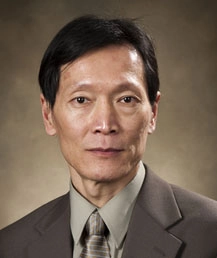 Dr. Shuhui Li received his B.S. and M.S. degrees in Electrical Engineering respectively from Southwest Jiaotong University in Chengdu, China and Ph.D. degree in Electrical Engineering from Texas Tech University. From 1988 to 1995, he was with the School of Electrical Engineering at Southwest Jiaotong University, where his research interests were in the areas of modelling and simulation of large dynamic systems, dynamic process simulation of electrified railways, power electronics, power systems, and power system harmonics. From 1995 to 1999, Dr. Li involved into the research areas of renewable energies, neural networks, and applications of massively parallel processing. He was with the Department of Electrical Engineering and Computer Science at Texas A&M University - Kingsville from 1999 to 2006. He joined the Department of Electrical and Computer Engineering at The University of Alabama in 2006. Dr. Li is a member of IEEE and a member of ASME.
Dr. Shuhui Li received his B.S. and M.S. degrees in Electrical Engineering respectively from Southwest Jiaotong University in Chengdu, China and Ph.D. degree in Electrical Engineering from Texas Tech University. From 1988 to 1995, he was with the School of Electrical Engineering at Southwest Jiaotong University, where his research interests were in the areas of modelling and simulation of large dynamic systems, dynamic process simulation of electrified railways, power electronics, power systems, and power system harmonics. From 1995 to 1999, Dr. Li involved into the research areas of renewable energies, neural networks, and applications of massively parallel processing. He was with the Department of Electrical Engineering and Computer Science at Texas A&M University - Kingsville from 1999 to 2006. He joined the Department of Electrical and Computer Engineering at The University of Alabama in 2006. Dr. Li is a member of IEEE and a member of ASME.
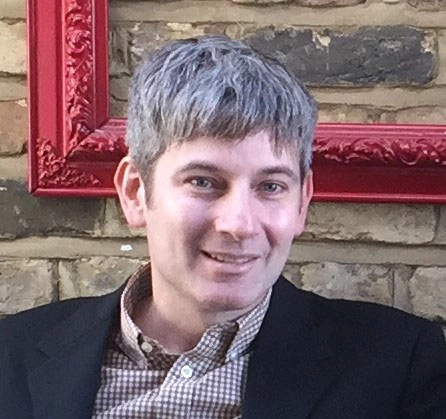 Brad Love is Professor of Cognitive and Decision Sciences at UCL and an inaugural Faculty Fellow at the Alan Turing Institute, the UK's national institute for data science. He is also an APS, ELLIS, and Wolfson fellow. His work lies at the intersection of Neuroscience, Experimental Psychology, and Machine Learning. He has made contributions in linking models of cognition to brain function, and to using large real-world datasets to understand human behaviour. His current focus is making deep learning approaches more consistent with human behavioural and brain measures to increase the robustness of models and make them more faithful accounts of human cognition. For example, work in his lab seeks to incorporate top-down, goal-directed attentional mechanisms into convolutional networks to improve model correspondence with human behaviour and brain activity. Another project aims to interface brain measures with networks to better understand how brain regions correspond to parts of networks and to pave the way for better brain machine interfaces.
Brad Love is Professor of Cognitive and Decision Sciences at UCL and an inaugural Faculty Fellow at the Alan Turing Institute, the UK's national institute for data science. He is also an APS, ELLIS, and Wolfson fellow. His work lies at the intersection of Neuroscience, Experimental Psychology, and Machine Learning. He has made contributions in linking models of cognition to brain function, and to using large real-world datasets to understand human behaviour. His current focus is making deep learning approaches more consistent with human behavioural and brain measures to increase the robustness of models and make them more faithful accounts of human cognition. For example, work in his lab seeks to incorporate top-down, goal-directed attentional mechanisms into convolutional networks to improve model correspondence with human behaviour and brain activity. Another project aims to interface brain measures with networks to better understand how brain regions correspond to parts of networks and to pave the way for better brain machine interfaces.